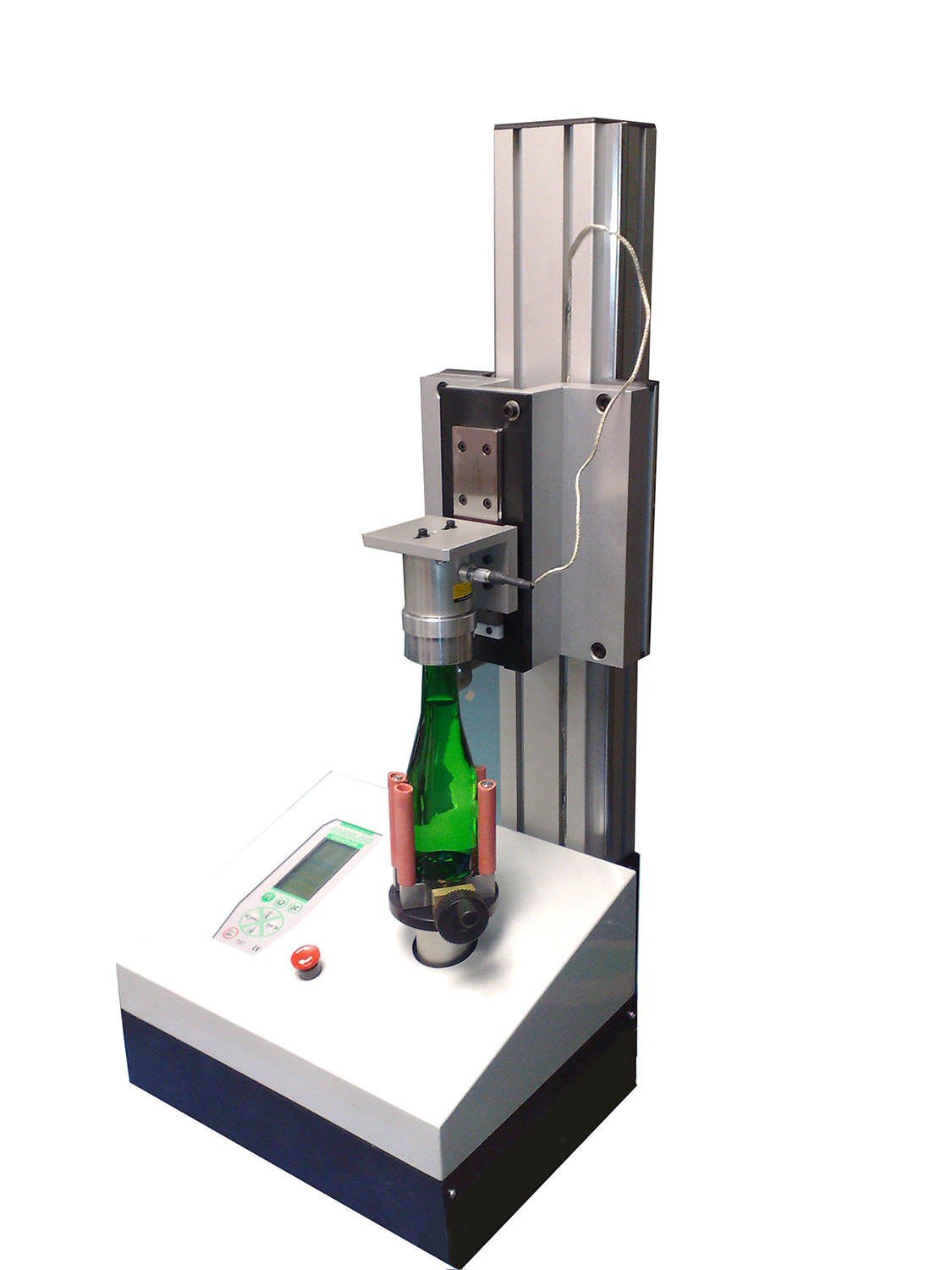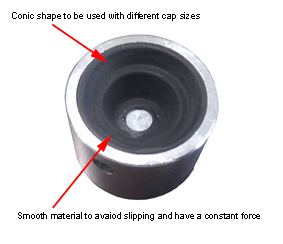It is sometimes really hard to measure the torque on caps. The quality of the measure depends on different parameters: material, operator, torque tester. So you can have important differences between results and it is impossible to have a good repeatability. Andilog Technologies gives you advises to improve your measurements.
The measures depend on several parameters:
- Rotational speed
- Clamping force on the bottle
- Clamping force on the cap
 1. Speed influences the torque measurement in 2 ways. First, if the speed is not constant during the test period, peaks appear on the measurement of torque. Secondly, and most importantly, the speed value affects the friction of loosening. In addition, the acquisition system may be too slow compared to the speed and "miss" the maximum.
1. Speed influences the torque measurement in 2 ways. First, if the speed is not constant during the test period, peaks appear on the measurement of torque. Secondly, and most importantly, the speed value affects the friction of loosening. In addition, the acquisition system may be too slow compared to the speed and "miss" the maximum.
Same speed between tests reduces variations. A motorized system is ideal for measuring torque and for testing large quantities of bottles.
2. Clamping force on the bottle in a vice during the tests may affect results. According to the material, the height and shape of the bottle, a deformation of the bottom of the bottle can influence measurements during tests.
3. The most critical is the grip on the cap. This parameter is the most influent parameter for the quality of the measurement. If the cap is tightened by hand or with a vise, clamping force is variable and depends mainly on the operator. This clamping force will strongly affect the friction between the cap and the bottle. Therefore the results vary significantly.
To improve the repeatability of measurements, it is recommended to use systems without vise. Andilog Technologies offers two solutions of "counter-caps" for a measure of quality.
Different types of counter-caps:
 | Conical counter-cap: One solution to reduce the effects of clamping is to use a cone type counter-cap. This is particularly advantageous if you have different sizes of caps. It allows one system to test different sizes of caps. The soft non-slip material spreads the force over the entire cap. Nevertheless, the force uses to press on the cap may vary slightly torque value. |
 | Reversed counter-cap: The ideal solution for measuring torque is to use an exact counter-cap molding. Therefore, the force required to grip the cap is minimized and the measured value becomes independent of the clamping force on the cork. This solution requires the use of one counter-cap for each type of cap. It is not applicable if the cap is smooth. |
